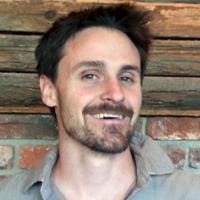
Research Focus:
Modeling and monitoring sediment and nutrient transport from agricultural watersheds
Research Abstract:
Mitigation strategies to minimize the loss of soil carbon require a fundamental understanding of the dominant hydrologic flow paths, which drive runoff generation, soil erosion, and ultimately the quantity and quality of carbon exported from a landscape. The variation in climate across the Inland Pacific Northwest has resulted in unique agroecosystems, which in turn has affected long term carbon storage and transport. In this study we quantified temporal and spatial hydrologic carbon fluxes at three watershed scales (~10 ha, ~5,000 ha and ~900,000 ha) and under two tillage practices (conventional and no-till). Additionally we tested the ability of the Water Erosion Prediction Project (WEPP) model to simulate present and future field scale variability in runoff and soil carbon erosion from a ~10 ha field catchment managed under conventional tillage practices. Samples were collected on an event basis for water years 2012 and 2013 using automated ISCO samplers at all locations. Samples were analyzed for dissolved organic carbon (DOC), particulate organic carbon (POC), and suspended sediment concentrations (SSC). Results indicate that (DOC) concentrations did not significantly vary with discharge at all sampling locations but DOC concentrations were two times greater from the no-till catchment while total organic carbon loads were 97% less than those observed at the conventional till catchment. Future climate predictions with the WEPP model indicate that sediment and loads will be equivalent to historic levels (>20 Mg ha-1) and slightly higher than current rates for runoff and carbon. Understanding the variability in hydrology as well as the trends in carbon export is an essential first step in the development of carbon budgets and full scale cropping models capable of evaluating precision-based carbon loss mitigation strategies.
Biography:
Ryan Boylan grew up in Southeastern Pennsylvania and received his B.S. degree in environmental science from the University of Vermont. Upon graduation he worked for the Department of Environment and Conservation in Collie Western Australia as a National Park Ranger. While there he helped to design and construct an award winning mountain bike trail system and implemented a water quality monitoring program. Upon returning to the United states he worked as an Arborist in Boulder CO. Most recently Ryan has completed a M.S. degree in Water Resources Science and management studying sediment and nutrient transport from agricultural watersheds in the Palouse Basin of the Inland Pacific Northwest. When not in the field collecting water quality data Ryan enjoys fishing, playing ice hockey and snowboarding.

